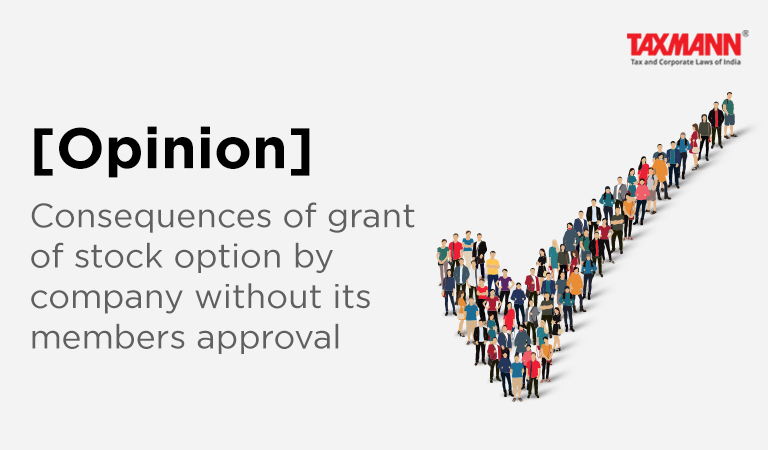
Prof R Balakrishnan- [2023] 148 taxmann.com 422 (Article)
1. Employee stock option
The term employee stock option refers to a type of equity compensation granted by companies to their employees and executives. Rather than granting shares of stock directly, the company gives derivative options on the stock instead. These options come in the form of regular call options and give the employee the right to buy the company’s stock at a specified price for a finite period of time. Terms of employee stock options are by and large fully spelt for an employee in an employee stock options agreement.
2. Framework of the Companies Act on employee stock option
As per the provisions of section 62(1)(b) of the Companies Act 2013, where at any time, a company having a share capital proposes to increase its subscribed capital by the issue of further shares, such shares shall be offered to employees under a scheme of employees stock option, subject to a special resolution passed by the company and subject to such condition as may be prescribed and in this regard the Rule 12 (4) (b) of the Companies (Share Capital and Debentures) Rules 2014 spells out the details.
3. Provisions under the Companies Act 2013 relating to this case
Following are the relevant provision relating to this case law.
| S. No | Act/Rules | Provisions |
| 1 | Section 62(1) (b) of the Companies Act 2013 | Whereas pursuant to section 62(1)(b) of the Companies Act 2013, where at any time, a company having a share capital proposes to increase its subscribed capital by the issue of further shares, such shares shall be offered to employees under a scheme of employees stock option, subject to a special resolution passed by the company and subject to such condition as may be prescribed |
| 2 | Rule 12 (4) (b) of the companies (Share Capital and Debentures) Rules 2014 | Whereas, Rule 12(4)(b) of the Companies (Share Capital and Debentures) Rules 2014 specifies as follows: |
| The approval of shareholders by way of a separate resolution shall be obtained by the company in case of- | ||
| (a) Grant of option to employees of subsidiary or holding company; or | ||
| (b) Grant of option to identified employees, during any one year, equal to or exceeding one per cent of the issued capital (excluding outstanding warrants and conversions) of the company at the time of grant of an option. |
4. Penal Provisions for default (if any) committed by the company
The relevant section for penal action is provided in section 450 of the Companies Act 2013 and as per this section that whereas pursuant to section 450, if a company or any officer of a company or any other person contravenes any of the provisions of this Act or the rules made thereunder, or any condition, limitation or restriction subject to which any approval, sanction, consent, confirmation, recognition, directions or exemption in relation to any matter has been accorded, given or granted, and for which no penalty or punishment is provided elsewhere in this Act, the company and every officer of the company who is in default or such other person shall liable to a penalty of ten thousand rupees, and in case of continuing contravention, with a further penalty of one thousand rupees for each day after the first during which the contravention continues, subject to a maximum of two lakh rupees in case of a company and fifty thousand rupees in case of an officer who is default or any other person.
Click Here To Read The Full Article
The post [Opinion] Consequences of grant of stock option by company without its members approval appeared first on Taxmann Blog.
